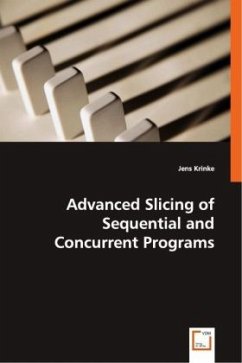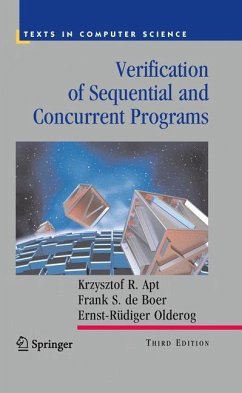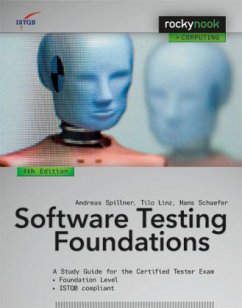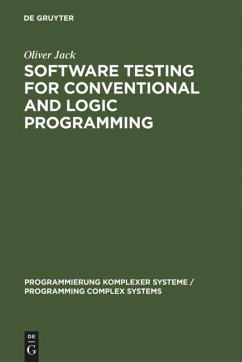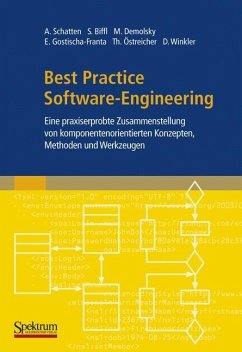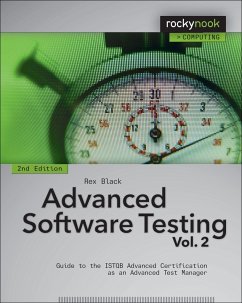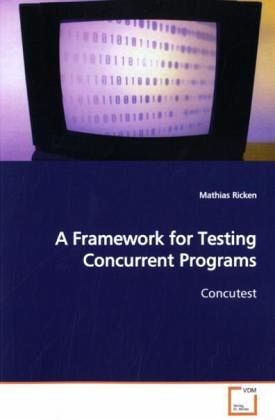
A Framework for Testing Concurrent Programs
Concutest
Versandkostenfrei!
Versandfertig in 6-10 Tagen
39,99 €
inkl. MwSt.

PAYBACK Punkte
20 °P sammeln!
Incremental, test-driven development is sweeping thesoftware industry, elevating testing from anancillary activity to an integral part of theprogramming process. Unfortunately, in our recentexperience developing production programs in Java,unit testing has only proven effective in assuringthe reliability of code with a single thread ofcontrol; it is much less effective in concurrentprograms. To facilitate the development of concurrentprograms, we have developed: 1. An extension of the JUnit framework that activelysupports the developer by treating tests that couldsilently ignore failures in au...
Incremental, test-driven development is sweeping the
software industry, elevating testing from an
ancillary activity to an integral part of the
programming process. Unfortunately, in our recent
experience developing production programs in Java,
unit testing has only proven effective in assuring
the reliability of code with a single thread of
control; it is much less effective in concurrent
programs. To facilitate the development of concurrent
programs, we have developed:
1. An extension of the JUnit framework that actively
supports the developer by treating tests that could
silently ignore failures in auxiliary threads as test
errors;
2. A lightweight Java annotation language that can be
used to specify and check the threading invariants of
both existing and new code;
3. A testing framework that can record and analyze
the schedules of unit tests, detect deadlocks, and
run the tests using modified schedules, increasing
the likelihood that concurrency problems are discovered.
software industry, elevating testing from an
ancillary activity to an integral part of the
programming process. Unfortunately, in our recent
experience developing production programs in Java,
unit testing has only proven effective in assuring
the reliability of code with a single thread of
control; it is much less effective in concurrent
programs. To facilitate the development of concurrent
programs, we have developed:
1. An extension of the JUnit framework that actively
supports the developer by treating tests that could
silently ignore failures in auxiliary threads as test
errors;
2. A lightweight Java annotation language that can be
used to specify and check the threading invariants of
both existing and new code;
3. A testing framework that can record and analyze
the schedules of unit tests, detect deadlocks, and
run the tests using modified schedules, increasing
the likelihood that concurrency problems are discovered.



